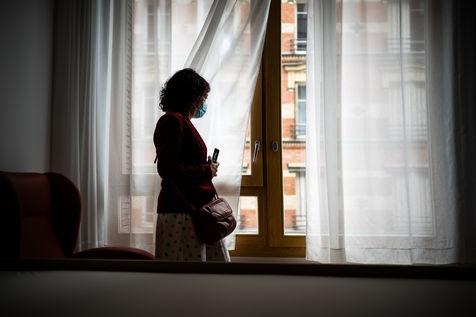Sara Weill-Raynal
Visite à l'Ehpad Sara Weill-Raynal, le nouvel établissement d'hébergement pour personnes âgées dépendantes Sara Weill-Raynal, Paris 03 juillet 2021.
Sara Weill-Raynal : Sara Leven (1888-1975) devient en 1910 l'une des premières femmes internes des hôpitaux de Paris. Elle devient dans les années 1930 inspectrice de la santé dans les départements de l'Oise et de la Seine. Socialiste engagée, elle est nommée en 1939 secrétaire générale du Comité des femmes socialistes. Sous l'occupation, la famille Weill-Raynal est frappée par les lois antisémites de Vichy. Étienne Weill-Raynal, son mari, est un moment interné à Drancy et plusieurs parents proches, dont sa mère et son frère, meurent en déportation. Empruntant de fausses identités, Sara et Etienne quittent Paris et leurs enfants se dispersent, certains rejoignent la résistance. Bien que fortement éprouvée par la guerre, Sara joue un rôle actif jusqu'à la fin de sa vie dans le Haut comité d'études contre l'alcoolisme.
Sara Weill-Raynal
Visit to Ehpad Sara Weill-Raynal, the new nursing home for the elderly Sara Weill-Raynal, Paris 03 July 2021.
Sara Weill-Raynal: Sara Leven (1888-1975) became one of the first female interns in Paris hospitals in 1910. In the 1930s she became a health inspector in the departments of Oise and Seine. A committed socialist, in 1939 she was appointed general secretary of the Socialist Women's Committee. During the Occupation, the Weill-Raynal family was affected by the anti-Semitic laws of Vichy. Her husband, Étienne Weill-Raynal, was interned for a time at Drancy and several close relatives, including her mother and brother, died in the deportation. Borrowing false identities, Sara and Etienne left Paris and their children dispersed, some of them joining the Resistance. Although greatly affected by the war, Sara played an active role until the end of her life in the High Committee of Studies against Alcoholism.



























































